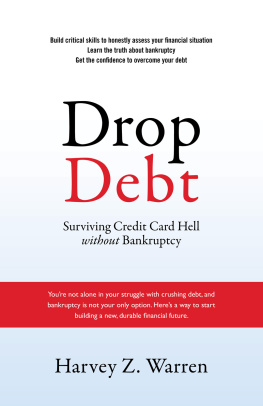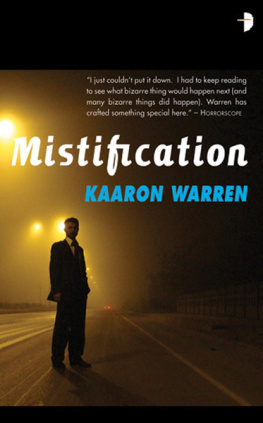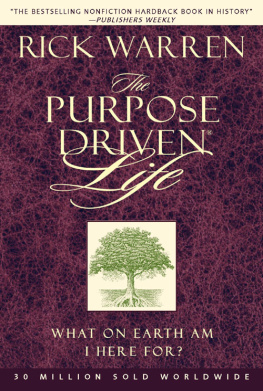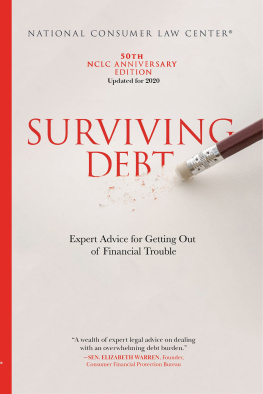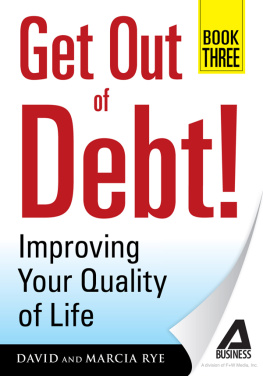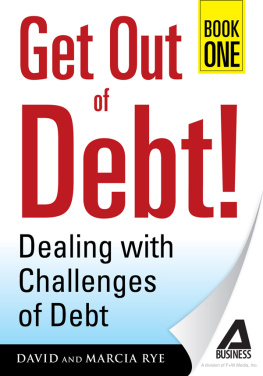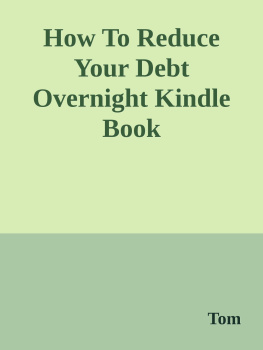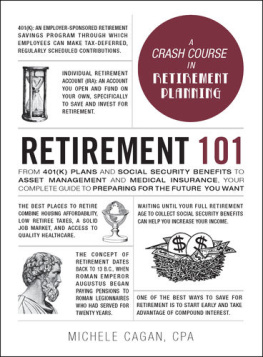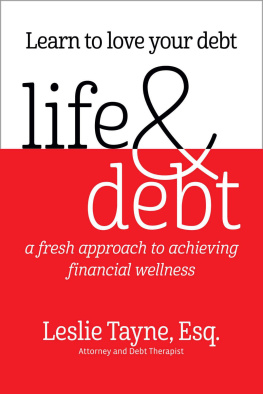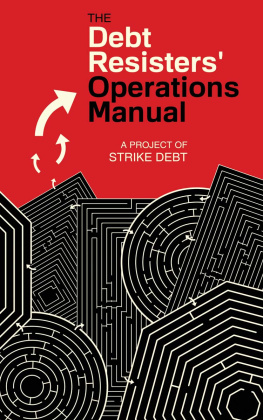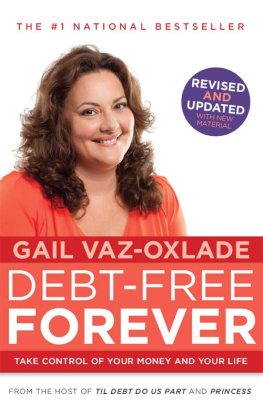This publication is designed to provide accurate and authoritative information in regard to the subject matter covered. It is sold with the understanding that the publisher and author are not engaged in rendering legal, accounting, or other professional services. If legal advice or other expert assistance is required, the services of a competent professional should be sought.
Published by Greenleaf Book Group Press
Austin, TX
www.gbgpress.com
Copyright 2010 Harvey Z. Warren
All rights reserved under all copyright conventions.
No part of this book may be reproduced, stored in a retrieval system, or transmitted by any means, electronic, mechanical, photocopying, recording, or otherwise, without written permission from the publisher.
Distributed by Greenleaf Book Group LLC
For ordering information or special discounts for bulk purchases, please contact
Greenleaf Book Group LLC at PO Box 91869, Austin, TX 78709, (512) 891-6100.
Design and composition by Greenleaf Book Group LLC
Cover design by Greenleaf Book Group LLC
Publishers Cataloging-In-Publication Data
(Prepared by The Donohue Group, Inc.)
Ebook ISBN: 978-1-60832-272-5
Ebook Edition
For Lisa and Cecilia, my heart and soul
When something difficult hits us in life, we can choose to be bitter or better.
With this book, get control of your financial life and choose to be better.
Contents
Introduction
An epidemic is quietly killing America. It destroys your peace of mind and robs you of your future. The disease is debt
T ELEVISION P UBLIC S ERVICE A NNOUNCEMENT , N ATIONAL C ONSUMER C OUNCIL , 2002
I remember the day with the sort of clarity that makes me feel my humiliation all over again: As I sat in the offices of Best Collections in Los Angeles, I couldnt peel my eyes off the tops of my shoes. I was one hundred eighty days past due on my American Express card, and I felt so ashamed. The balance was quite high, and there was no possible way I could pay it in full. I could feel my dignity draining away as I sat there, knowing I had to answer the questions the collector was about to ask me, and also knowing there was no way I could give him the answer he most wanted to hear.
In the years since that day, I have been privileged to help thousands of people escape the debt trap, but I am not writing this book because I have helped others. I am writing this book because I personally survived the debt trapand you can, too.
This is a book about people just like you and me who find themselves at the end of their financial rope. In particular, this is a book about people who have trouble with credit cards and how they can get out of that trouble without resorting to bankruptcy. As far as I know, this book represents the only evenhanded analysis of the debt settlement process ever published for the consumers benefit. The appeal of easy credit, the lure of 0% introductory interest rates from credit card companies, and the assurance of being told you are preapproved has bankrupted nearly ten million American credit card holders in the last seven years alone. Currently, about one million Americans a year file for bankruptcy. In this book, youll learn how to return to debt-free living. Youll also find out how to reclaim your dignity, your self-respect, and your financial health.
I took the quote at the beginning of this introduction from an ad produced by the National Consumer Council (NCC), an organization I led from 2001 to 2004. During this time, the National Consumer Council reached out to tens of millions of Americans via television, radio, and telephone to warn them about the dangers of making only minimum payments on their existing credit cards and of signing up for new credit cards being offered to them by mail on an almost daily basis. The NCC also alerted students on college campuses to the dangers of trading their future financial well-being for beer mugs and T-shirts doled out by credit card representatives standing behind folding tables covered with crepe paper. Although personal responsibility is the fundamental first step to financial health, I firmly believe that the credit card issuers have played a major role in creating the current consumer debt crisis in America. Financial institutions have made billions of dollars in profits from the aggressive marketing of debt. Until banks are properly regulated to protect consumers, the debt merchants have very little incentive to amend their slick credit card campaigns that have snared millions of unsuspecting consumers.
During my time with the NCC, I met with hundreds of people who took responsibility for their debt and looked their financial disaster in the eye. They demonstrated to me that consumers in debt trouble are ready, willing, and able to rethink, reject, and release their credit habits and misconceptions. These people were able to avoid bankruptcy and start building durable financial futures. The information and advice in this book can help you take responsibility, just as they did; it can help you avoid the personal anguish and long-term financial consequences of bankruptcy and give you the skills and knowledge you need to avoid being in anyones debt ever again.
The Debt Problem
The fact that winning the battle against debt is possible doesnt mean it will be easy. Many consumers who genuinely want to pay their credit card debts will not be able to do so in their lifetimes unless they win the lottery or inherit money from a rich relative. In Credit Card Nation (Basic Books, 2001) , Dr. Robert D. Manning, a distinguished professor at the Rochester Institute of Technology, provided one of the first scholarly analyses of the financial damage that credit card debt was inflicting on a diverse group of consumers. No longer were those in credit card trouble primarily members of the so-called subprime community, often the prey of pawnbrokers and loan sharks. With the arrival of platinum and black cards, a whole new category of consumers was amassing previously unimaginable levels of credit card debt. I personally assisted one individual from Texas who had accumulated more than $500,000 in unsecured credit card debt on over sixty credit cards.
According to Dr. Manning, the current system of deregulated banking is wired to help you lose. Major U.S. banks, through their competitive marketing campaigns, have unwittingly conspired to create the current consumer debt crisis. In the crazy world of credit card marketing, consumers who do not pay their card balances in full each month are the most sought-after customers. In fact, these consumers represent the most profitable market segment for the banking industry.

The people who do not pay their credit card bills in full each month are the most sought-after customers.

In November 2004, PBS aired a Frontline episode, The Secret Life of Credit Cards. This program revealed what I had seen thousands of times when consumers contacted the National Consumer Council for help: The excessive extension of credit and easy payment terms had created a subculture of permanent debtors who faced either lifelong financial slavery or bankruptcy. The PBS program pointed out how marketing consultants had improved bank profits by convincing the banks that much more money could be made by offering consumers a 2% minimum payment, rather than the traditional 4% minimum payment. This financial innovation made it possible for consumers of limited means to take on nearly unlimited debt, and it thus launched the debt epidemic. Larger and larger balances, coupled with smaller and smaller minimums, equaled greater profits for the lender over the life of loans that literally had no endat least, not in the borrowers lifetime.

